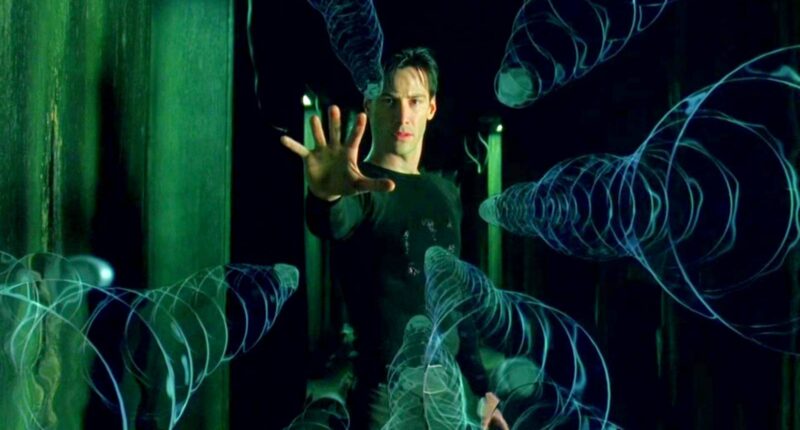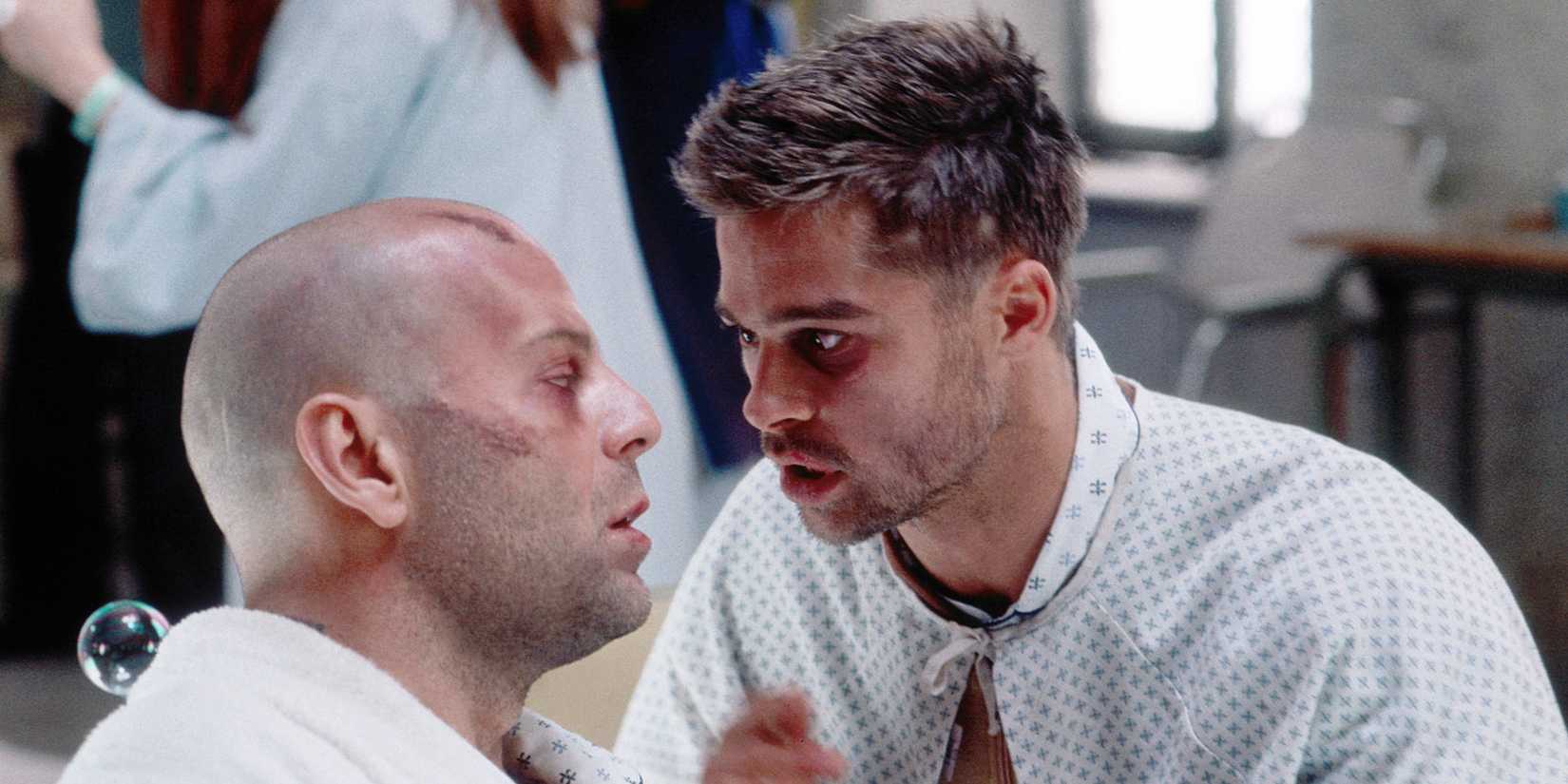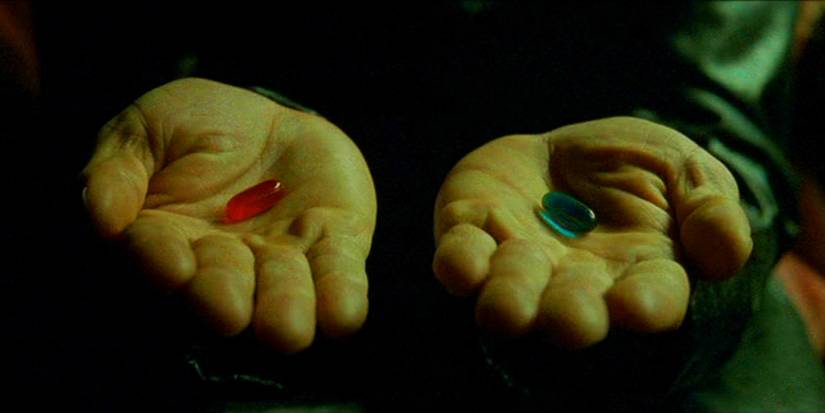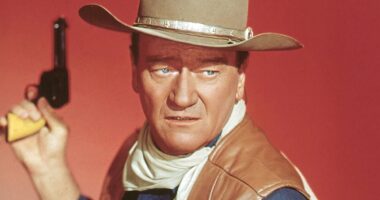It’s not without good reason that The Matrix is widely considered the pinnacle of 1990s sci-fi movies. The Wachowski sisters created a rich dystopian universe with some of the most unique visuals ever put to film. Despite missing the mark with all three sequels, 1999’s original The Matrix melds the coolness of cyberpunk with existential philosophy and martial arts sensibilities to wondrous effect.
It’s a blend that remains potent in 2025. The core trinity of Neo, Morpheus and, er, Trinity are each perfectly cast, while Hugo Weaving’s Agent Smith is delightfully imperious as one of cinema’s greatest bad guys. The Wachowskis’ ambitious vision is matched only by their flawless execution of every scene. In another director’s hands, The Matrix may have drowned in a mire of meaningless exposition and impenetrable lore. Thanks to the Wachowskis, it feels like a manifesto with special effects.
The Matrix rapidly ascended to classic status, and while such accolades are undoubtedly deserved, less recognizable sci-fi movies from the 1990s merited the same amount of attention, if not more. Bruce Willis’ 12 Monkeys is one such film.
12 Monkeys Is A More Human Story Compared To The Matrix
Despite The Matrix‘s many strengths, it’s difficult to call the movie a “human story” with a straight face. The Matrix is a man vs. machine tale, sure, but those on the human side almost feel like an alien species. As the One, The Matrix elevates Keanu Reeves’ Neo into a Christ-like figure, removing any kind of relatable element for the audience to grasp onto. Neo is a hero to aspire to, not an agent for the viewer.
The Matrix‘s other main humans, Morpheus and Trinity, both carry an air of cool detachment. This has its benefits. Trinity’s icy nature acts as a catalyst for her transformation into an icon of action cinema, while Morpheus comes across as the sage who always knows more than he’s letting on. Such characterizations enrich The Matrix as a vision of our machine-dominated future, but once again, it becomes difficult to build that personal connection between the heroes and the audience.
Even the wider culture of Zion feels like a totally different planet, so whenever the later movies try to emulate real-world society – the rave scene, for example – the parallel just seems out of place.
By incorporating a ’90s timeline, 12 Monkeys has a tangible, grounded quality that The Matrix doesn’t. You still get the cold and frightening dystopia, the lofty ethical musings, the narrative complexity, etc. But 12 Monkeys, and specifically Madeleine Stowe’s Kathryn, creates an anchor between the fantastical and the real.
That connection is aided significantly by the most overt difference between Keanu Reeves’ Neo and Bruce Willis’ Cole. Whereas Neo is, effectively, Superman in a goth’s coat, Cole has an every-man quality that can be easily identified with. It’s similar to the confusion and disbelief Thomas Anderson first experiences during The Matrix‘s opening 30 minutes, but whereas Neo transcends into something bigger, Cole stays painfully human.
His unwillingness to travel through time, his reluctant sense of duty, his total lack of power – 12 Monkeys hits so much harder because Cole isn’t a superhero.
12 Monkeys Handles The Theme Of Causality Much Better Than The Matrix
The Matrix and 12 Monkeys share a number of themes common throughout sci-fi, but the notion of causality represents their biggest parallel.
The Matrix deals heavily in the so-called illusion of choice. Does Neo choose the red pill Morpheus offers, or was the choice already made for him? Is Neo choosing to save Zion, or is it his destiny? This concept is extrapolated upon in The Matrix‘s sequels, especially when it transpires that the One is merely another part of the Matrix’s design, repeating over and over across the years.
The increasingly convoluted nature of its sequels creates its own problem, but if you ignore those films and focus on The Matrix alone, the first chapter still struggles with answering its causality conundrum.
Neo’s miraculous act of resurrection in The Matrix‘s ending proves he is indeed the One that Morpheus believed in. The Matrix presents this as a moment of uplifting heroism, but Neo being the One only confirms his lack of agency – the illusion of choice. What feels like a win should actually be a downbeat realization that Neo isn’t controlling his own path.
12 Monkeys strikes a more pleasing note of ambiguity, both in terms of whether causality is real and also in terms of how the audience should feel about it. During 12 Monkeys‘ finale, Cole is scrambling to stop the virus that caused the apocalypse from his timeline, or at least acquire the virus so that a cure can be synthesized for the future.
Throughout his travels back and forth through time, Cole considers whether his actions in the past are actually causing the bleak future he knows, and it’s a question 12 Monkeys never conclusively answers. The scientist’s presence on the plane during the final scene could mean the good guys win thanks to Cole identifying the true culprit, or the scientist’s interference could be what causes the outbreak in the first place.
Because Cole dies – and, unlike Neo, doesn’t come back to life – 12 Monkeys differs from The Matrix by not offering easy answers or a happy ending. The audience is allowed to feel fearful, giving the entire conversation of causality the weight it really deserves.
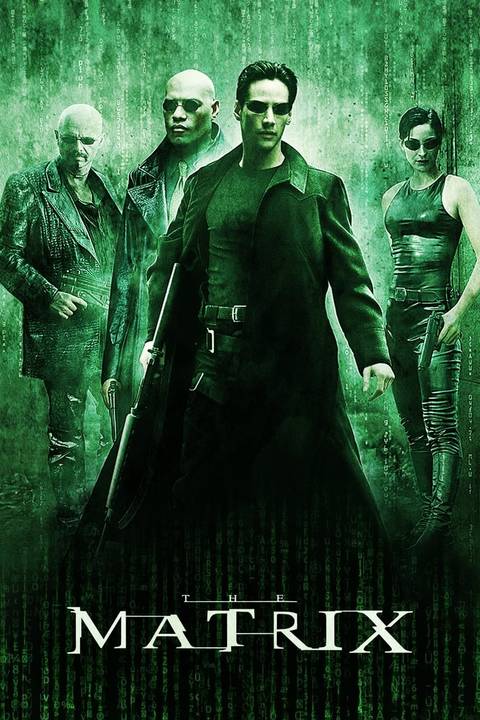
- Release Date
-
March 31, 1999
- Runtime
-
136 minutes
- Director
-
Lana Wachowski, Lilly Wachowski
